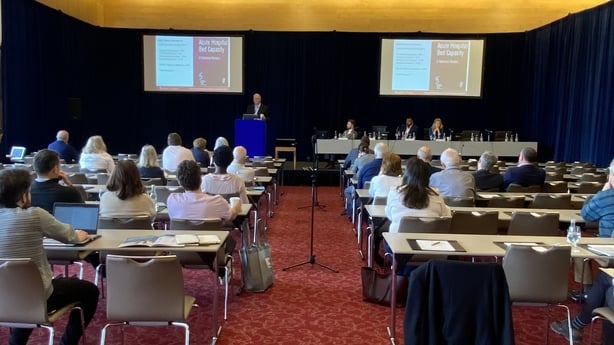The annual conference of the Irish Medical Organisation has heard that reports for the last 20 years have called for more hospital beds.
Dr Mick Molloy, consultant in emergency medicine at Wexford General Hospital, said that there was no need for more reviews on bed capacity.
He told a debate on capacity deficits that in the 1980s Ireland had around 17,800 beds and now has around 11,800.
Dr Molloy also said that there was underreporting of true trolley numbers.
He said the daily HSE TrolleyGar trolley numbers gave a partial picture and the figures from the Irish Nurses & Midwives Organisation were consistently higher.
Dr Molloy said that among the patients often not included in trolly counts were those who were placed in a surgical day ward, a medical day ward, an Acute Medical Unit, a Medical Admissions Unit, a Discharge Lounge or a Day Oncology Unit.
He told the conference that the implications of underreporting trolley numbers were short notice cancellations of day or inpatient surgery, as well as missed cancer cases.
Dr Molloy said that more beds and elective only hospitals would have an immediate effect.
The Department of Health has said that around 1,000 extra beds have been put into the system and more beds are coming.
It also has plans for three elective only hospital beds in Dublin, Galway and Cork.

The Irish Cancer Society's Director of Advocacy Rachel Morrogh told the conference that cancer patients can find themselves sitting in corridors and standing in corridors because chairs are full.
She said they are tired, despondent and upset.
Ms Morrogh said that the society gets calls from patients confused and worried when their procedures are cancelled.
She also said that the costs of cancer care for patients were a significant challenge, especially car parking and day to day expenses.







